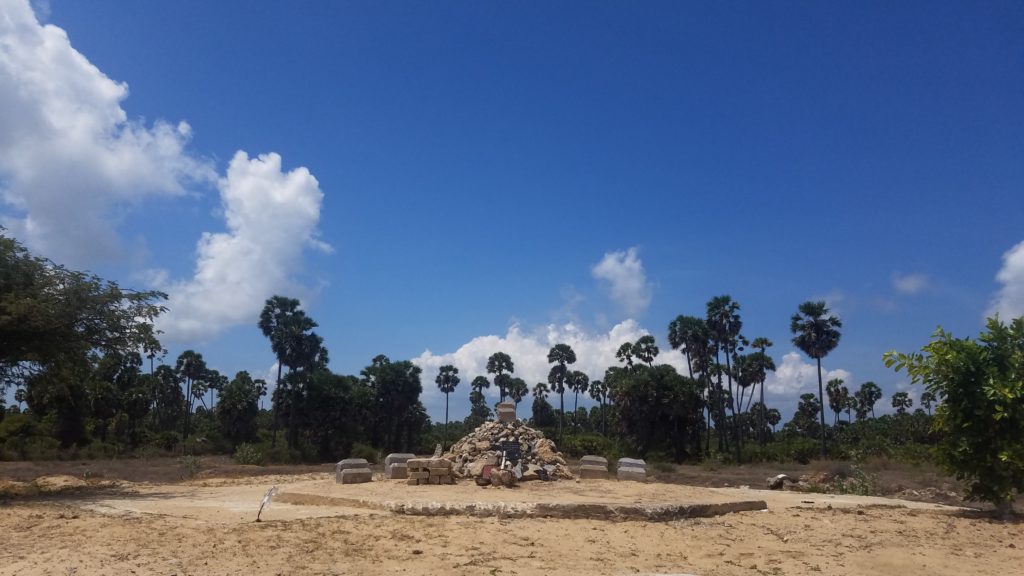The Sri Lankan State’s erasure of the complex history and experiences of the war manifest in varying ways across the country; military monuments that showcase a single victory narrative, the construction of Buddhist statues in Tamil-majority areas and the blatantly incorrect signboards at several of these locations. Then, there is the desecration of the Liberation Tigers of Tamil Eelam’s (LTTE) ‘maaveerar thuyilum illam’, which loosely translates to ‘great heroes’ resting places’.
Here lie bodies of LTTE cadres killed in combat. In the several cases where bodies could not be recovered, memorial headstones are erected. The people who remember them in their original state are quick to say that they were graveyards as much as they were gardens, or even temples, meticulously designed and maintained by the LTTE and their families. Now, some of them are cement fragments piled in the centre of a vast field, while others form the foundation of a few of the many army camps that cover the peninsula.
The contents of this article are based on visits to 14 sites of thuyilum illams in the Northern Province in May 2018. The authors thank the residents, community leaders and members of the clergy who provided information for this story. The names of individuals encountered at the sites were not recorded and names of all other interviewees have been withheld, for the purpose of security. Their consent was obtained to document, photograph and publish these stories. Dates of the construction, destruction and last known memorialisation events narrated to us by residents were cross-verified with available details of the combat timeline as far as possible. This is by no means an exhaustive list, as there are many more such sites in the Northern and Eastern provinces. The authors welcome any comments and insights.
Update, November 2023: Click here to view an archive of this story on the Wayback Machine, which was originally produced on a platform called Atavist that no longer exists. Click here to read it as a PDF.
Editors Note: Read also The desecration of graves in Jaffna: Path to reconciliation? and Tuyilam Illam: Positivist readings and new debating grounds
